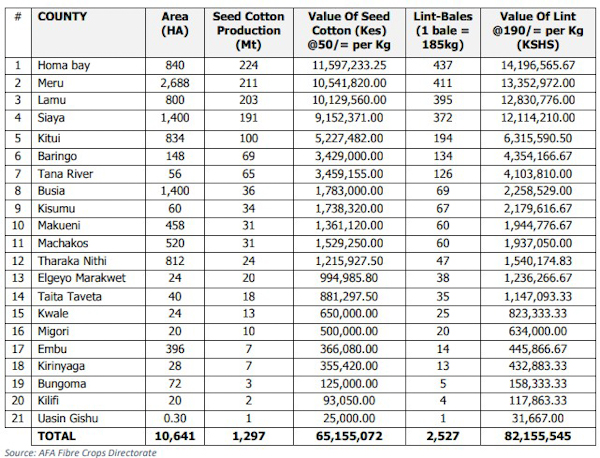Fibre Directorate says cotton production in Kenya declined by 59 percent year-on-year to 2,527 lint bales worth Ksh 82 million in 2021, a decline from 6,196 bales worth Ksh 1.76 million dollars in 2020.
The Directorate noted that this was largely attributed to farmers lacking access to genetically modified Bacillus Thuringiensis (BT) seeds imported mainly from India.
“Getting seeds was a major challenge during the period under review especially due to the fact that the Bt seeds have to be imported into the country from India, and undergo germination test before distribution. In most cases, the seeds reached the farmers late and they were also inadequate for all who had prepared their land,” said the directorate in its 2021 report.
For instance, the counties of Laikipia, Isiolo, Murang’a, West Pokot, and Turkana did not grow any cotton during the period under review, because either seed was not available, or due to harsh weather conditions in those particular regions, which discouraged the farmers from growing the crop.
“In comparison to the previous period, the area under the crop was higher during the period under review by 8% (from 9,837 ha to 10,641 ha), though this increase did not translate into the anticipated higher production due to a combination of many factors during the period under review. Production was lower by almost 62% during the period under review.”
Kenya in 2019 approved commercial farming of Bt cotton, making the crop the first genetically modified plant to be grown in East Africa after a 20-year research period.
Kenya Plants First BT Cotton Seed Targeting Over 200,000 acres in Two Years
Khusoko is now on Telegram. Click here to join our channel and stay updated with the latest Agriculture and Environment news and updates.





